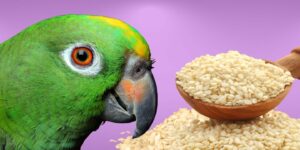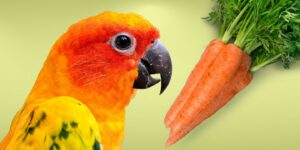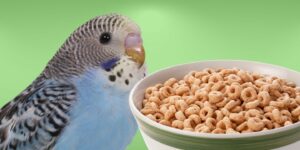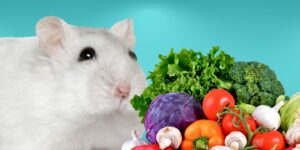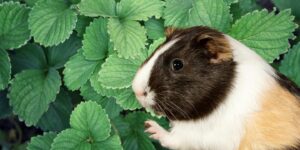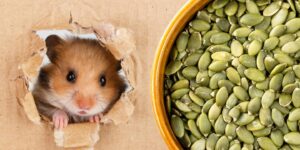Guinea pigs are popular pets known for their friendly and curious nature. As responsible pet owners, it is important to be aware of what foods are safe for them to consume. One common question is whether or not guinea pigs can eat cheese. The short answer is no, guinea pigs cannot eat cheese. In this article, we will discuss the reasons why cheese is not a suitable food for guinea pigs, the potential consequences of feeding them cheese, and healthier alternatives to include in their diet.
Understanding Guinea Pig's Natural Diet
The Importance of Hay
A guinea pig's natural diet primarily consists of hay, such as Timothy hay or Meadow hay. Hay provides the necessary fiber and roughage required to keep their digestive systems functioning properly. It also helps wear down their constantly growing teeth, preventing dental problems.
Vitamin C Requirements
Guinea pigs, unlike many other animals, are unable to produce their own vitamin C. Therefore, they require a diet that includes a sufficient amount of vitamin C to maintain proper health. Deficiencies in this essential nutrient can lead to scurvy and other health issues.
The Role of Fruits and Vegetables
In addition to hay, guinea pigs should have a daily serving of fresh fruits and vegetables. These fresh foods not only provide a source of vitamin C but also offer other important nutrients such as vitamins, minerals, and antioxidants.
The Nutritional Content of Cheese
High Fat Content
Cheese is high in fat, which is not suitable for guinea pigs. Excessive amounts of fat can lead to weight gain and obesity, which can negatively impact their overall health.
High Sodium Content
Cheese contains high levels of sodium, which is not suitable for guinea pigs. Excessive sodium in their diet can lead to elevated blood pressure and heart issues.
Lack of Essential Nutrients for Guinea Pigs
Although cheese contains proteins and calcium, it lacks essential nutrients required by guinea pigs, such as vitamin C, making it a poor choice for their diet.
Health Risks Associated with Feeding Cheese to Guinea Pigs
Digestive Problems
Lactose Intolerance
Guinea pigs are not able to properly digest lactose, the sugar found in dairy products like cheese. Feeding guinea pigs cheese can result in lactose intolerance symptoms such as stomach pain, bloating, and diarrhea.
Diarrhea and Gas
Aside from lactose intolerance issues, cheese can also lead to diarrhea and gas in guinea pigs due to its high-fat content and the inability of their digestive systems to break it down effectively.
Increased Risk of Kidney and Bladder Stones
Calcium-rich foods, like cheese, can contribute to the formation of kidney and bladder stones in guinea pigs, leading to more serious health problems.
Weight Gain and Obesity
As mentioned earlier, the high-fat content in cheese can lead to weight gain and obesity, causing a variety of health problems for your guinea pig.
Elevated Sodium Levels and Associated Health Issues
High sodium levels in cheese can lead to elevated blood pressure and other health issues in guinea pigs, negatively impacting their overall well-being.
Safe and Healthy Foods for Guinea Pigs
Vegetables
Leafy Greens
Leafy greens, such as romaine lettuce, kale, and spinach, are excellent sources of vitamin C and other essential nutrients for guinea pigs.
Bell Peppers
Bell peppers are a vitamin C-rich food that guinea pigs enjoy and can safely consume.
Carrots
Carrots provide essential nutrients and can act as a crunchy treat for your guinea pig to enjoy.
Parsley
Parsley is an excellent source of vitamin C and other nutrients, making it a great addition to a guinea pig's diet.
Fruits
Apples
Apples can be given to guinea pigs as an occasional treat, as they are high in sugar. Be sure to remove the seeds and core before feeding.
Pears
Pears should also be given sparingly, as they are high in sugar. Remove the seeds and core before feeding to your guinea pig.
Berries
Berries, such as strawberries, blueberries, and blackberries, can be fed to guinea pigs in moderation as an occasional treat.
Guinea Pig Pellets
Pellets made specifically for guinea pigs should be given daily, as they supply the necessary nutrients, such as vitamin C and dietary fiber, to maintain their health.
Occasional Treats
In general, guinea pigs should be given healthy treats like fruits only occasionally, as these can be high in sugars that should be kept to a minimum in their diet.
Foods to Avoid
Other Dairy Products
Like cheese, other dairy products like milk, yogurt, or ice cream should be avoided, as guinea pigs are unable to digest lactose.
Processed Foods
Processed foods, such as chips or cookies, should not be given to guinea pigs, as they contain high amounts of fat, sodium, and other unhealthy ingredients.
High-sugar Treats
Candy and other high-sugar treats should be avoided, as they contribute to weight gain and dental problems in guinea pigs.
Toxic Foods
Some foods, including onions, garlic, and chocolate, are toxic to guinea pigs and should never be fed to them.
Monitoring Your Guinea Pig's Diet and Health
Signs of a Healthy Diet
Well-balanced and healthy diets for guinea pigs will result in healthy weight, a shiny coat, bright eyes, and good energy levels.
Signs of Dietary Issues or Illnesses
Monitor your guinea pig for signs of dietary issues, such as weight loss or gain, lethargy, or diarrhea. If you notice any concerning symptoms, consult your veterinarian immediately.
Regular Checkups and Consultations with a Veterinarian
Regular checkups with your veterinarian will help ensure your guinea pig remains in good health and follows an appropriate diet.
Final Thoughts
Feeding your guinea pig a balanced and nutritious diet is crucial for their overall health and well-being. While cheese may be a delicious treat for humans, it is not suitable for guinea pigs due to its high fat and sodium content, as well as the potential for digestive problems and other health issues. By providing your guinea pig with a variety of safe and healthy foods, you can ensure they live a happy and healthy life.



